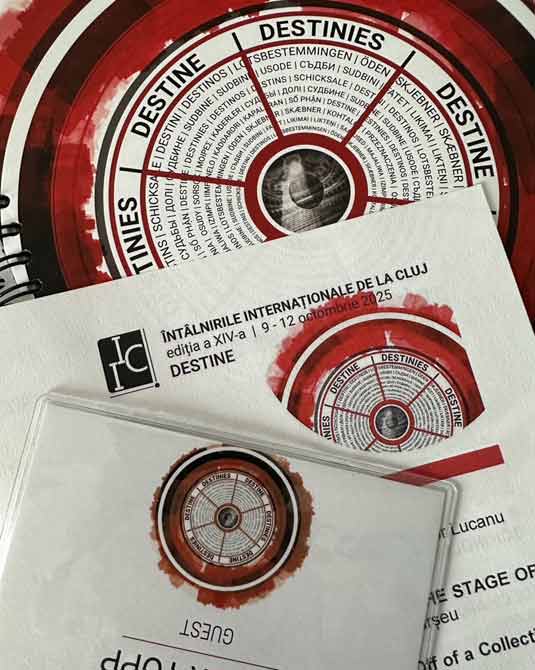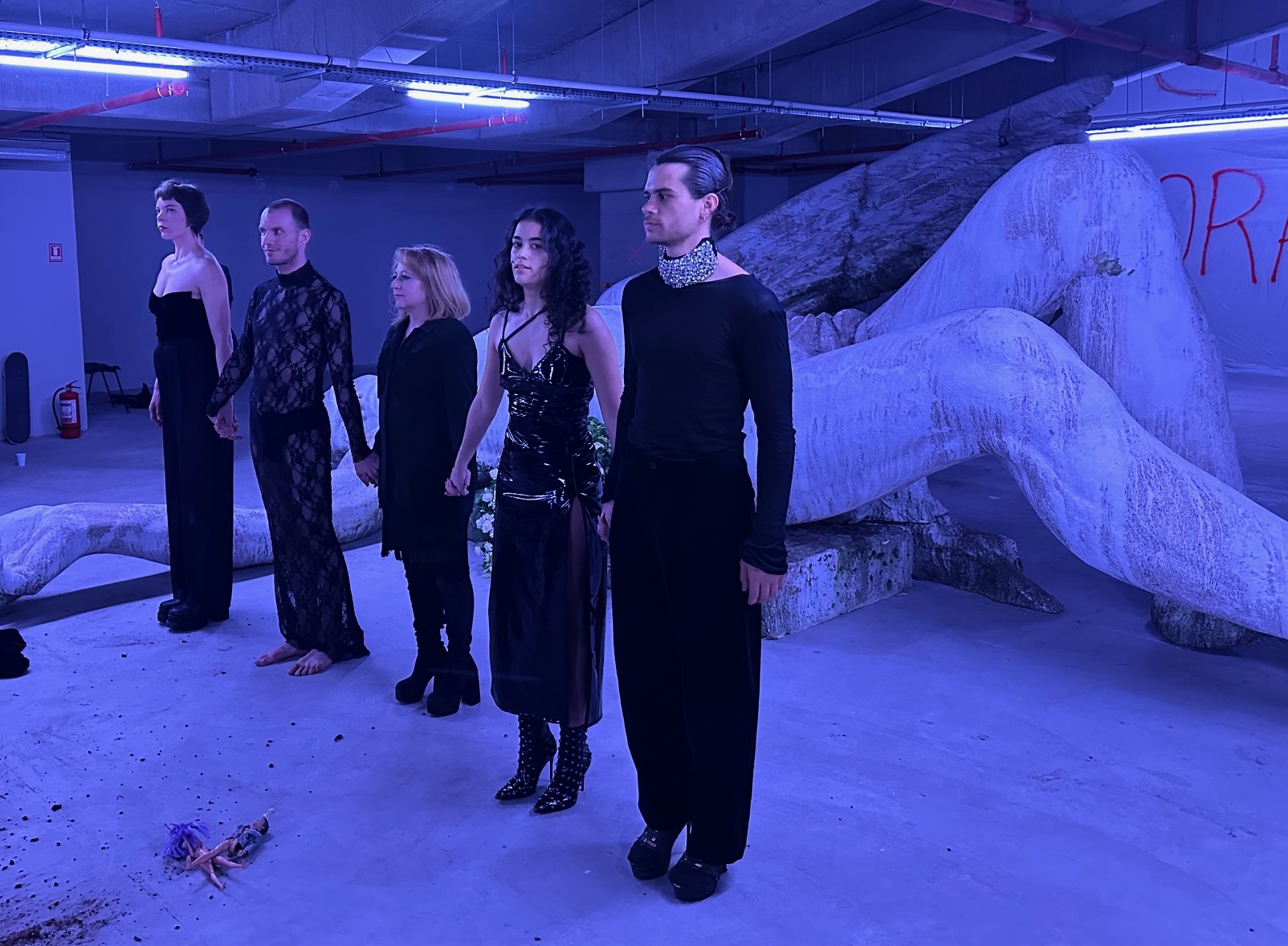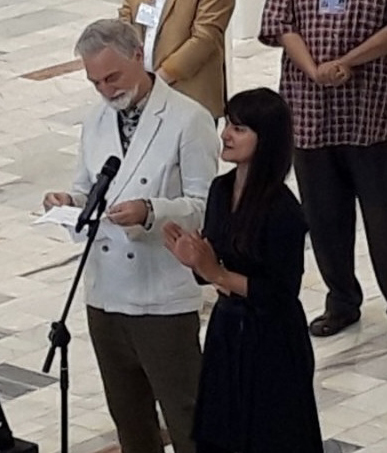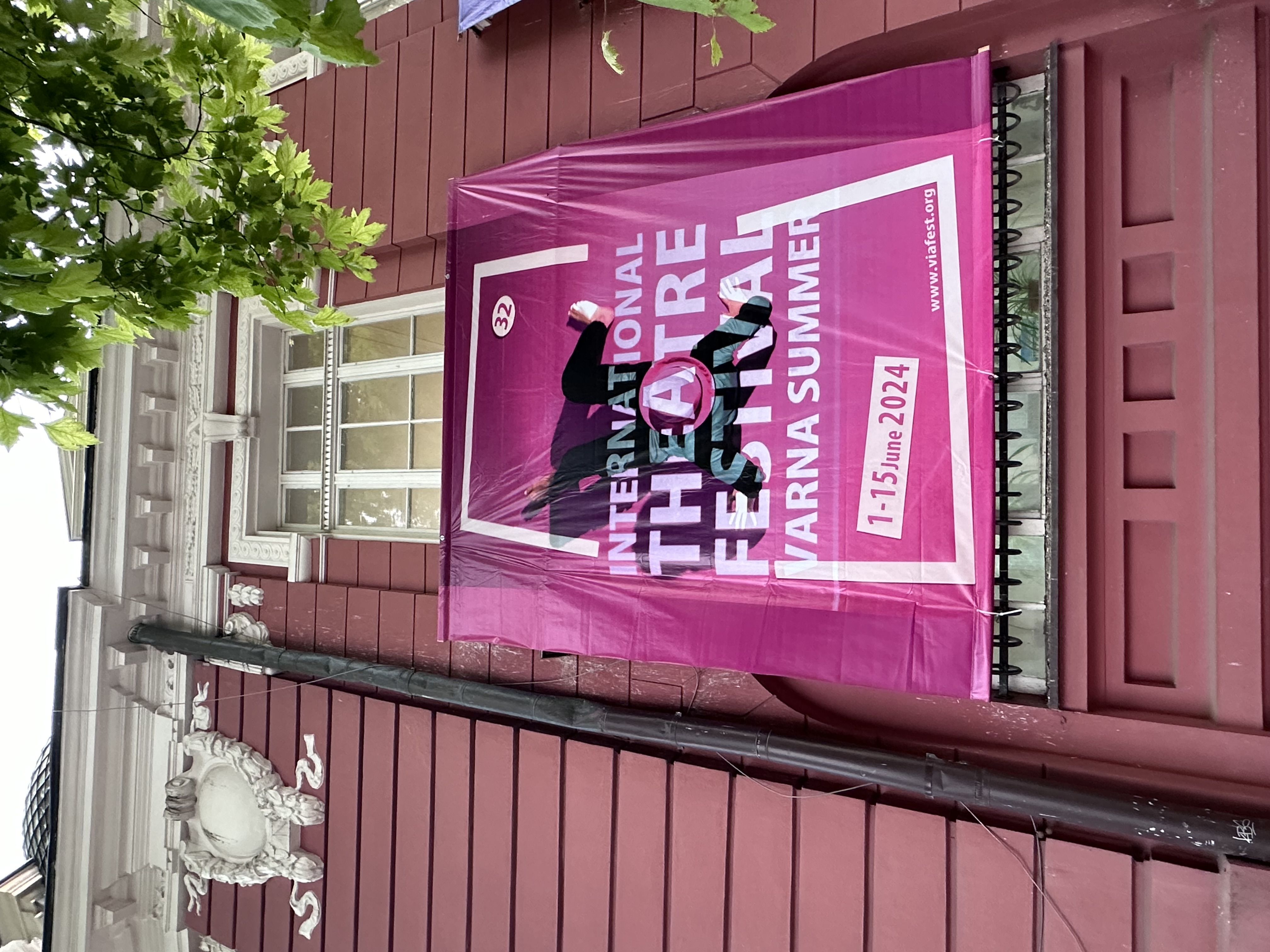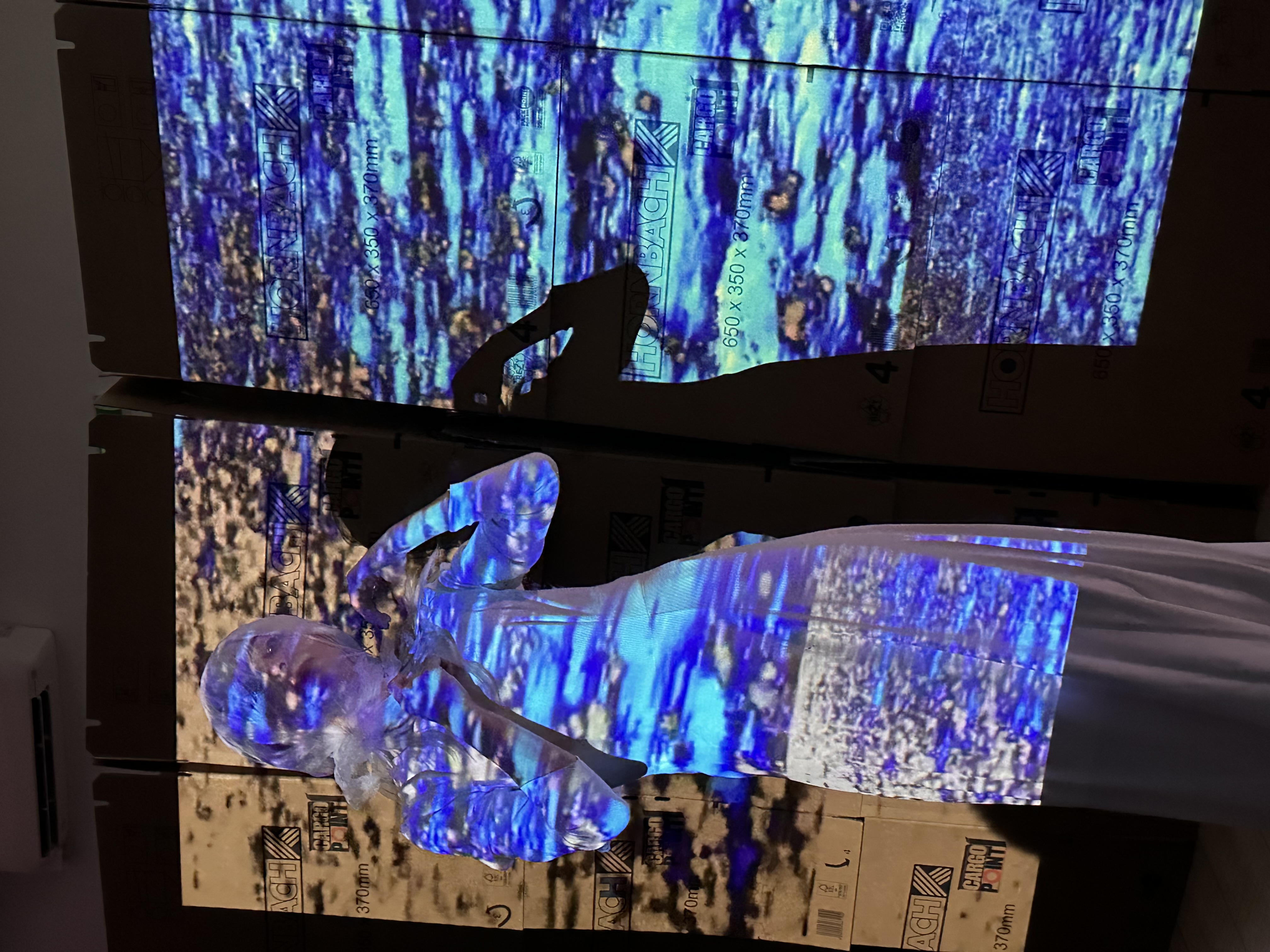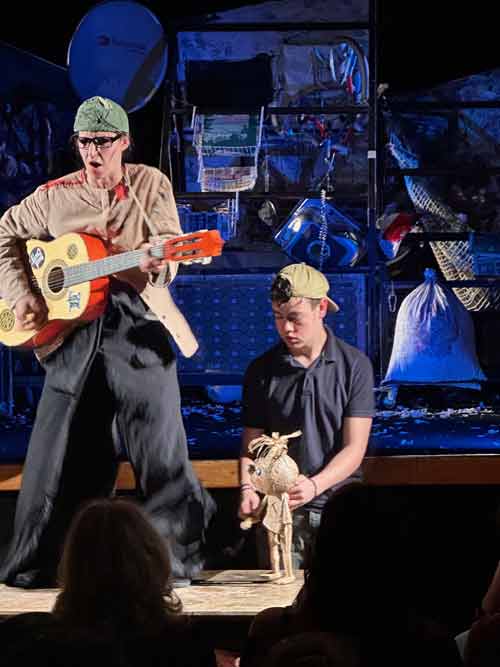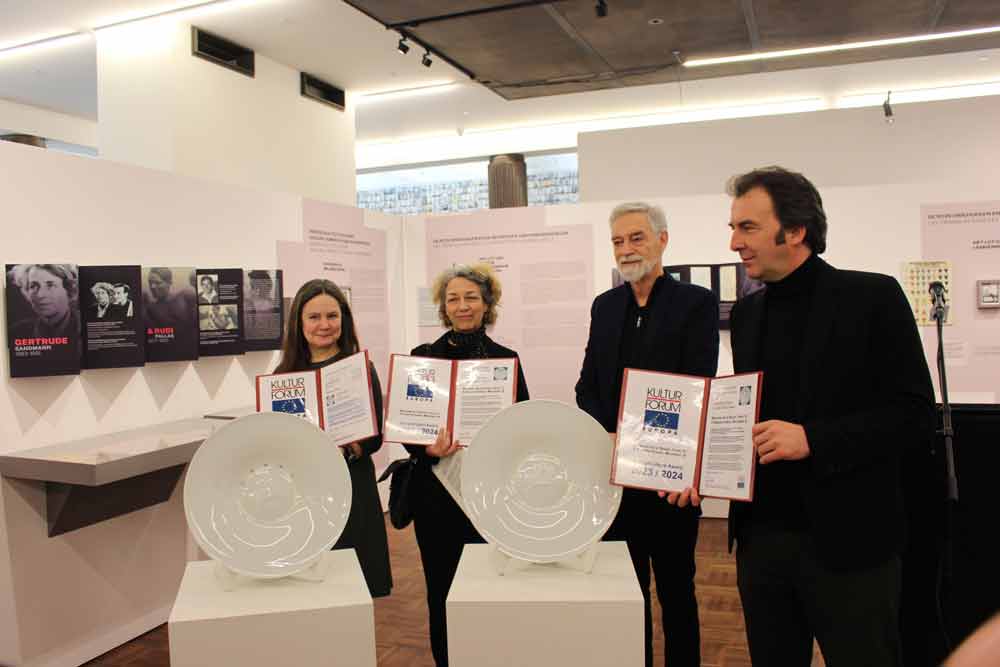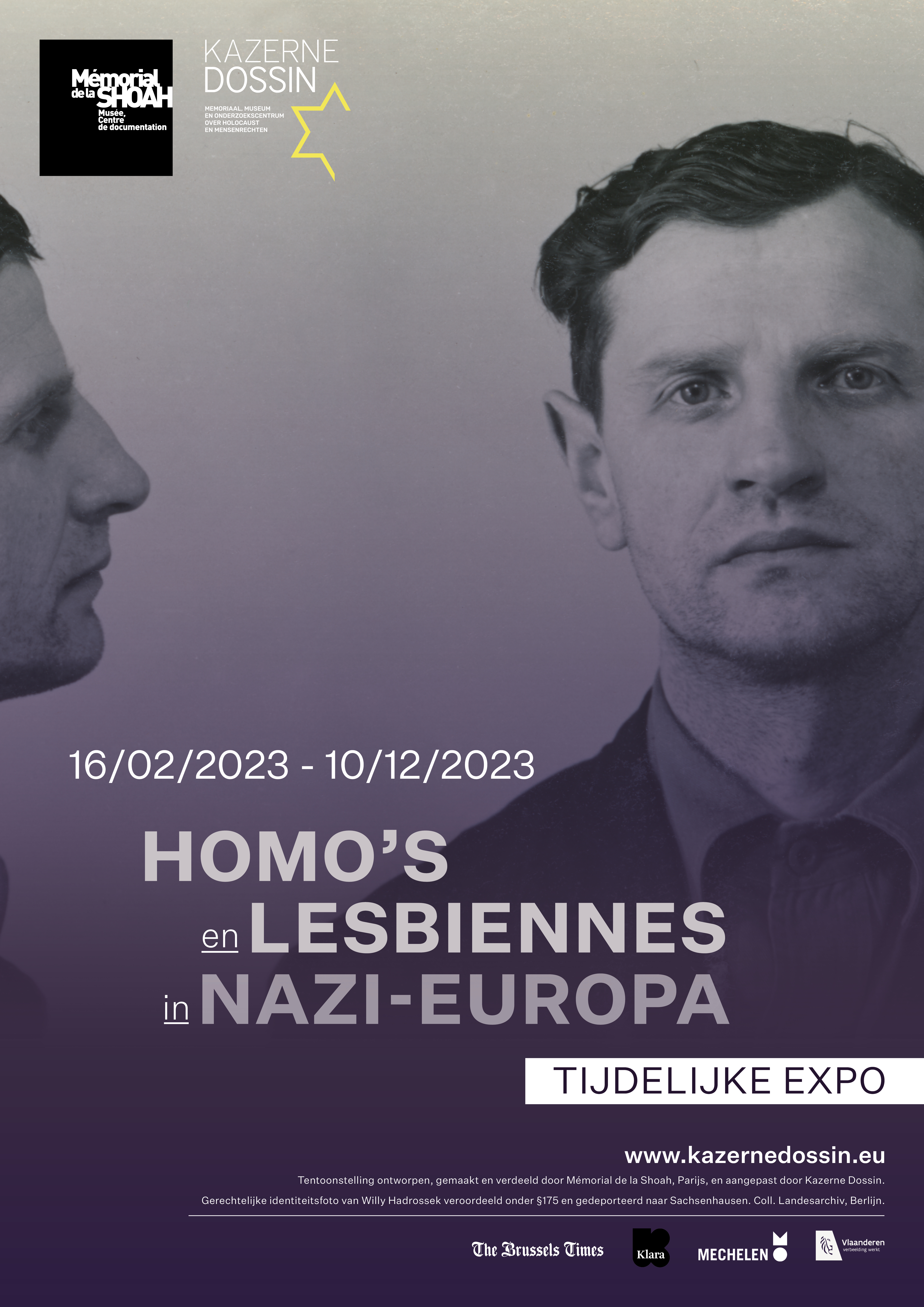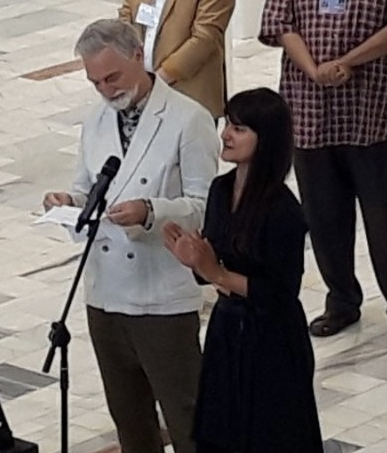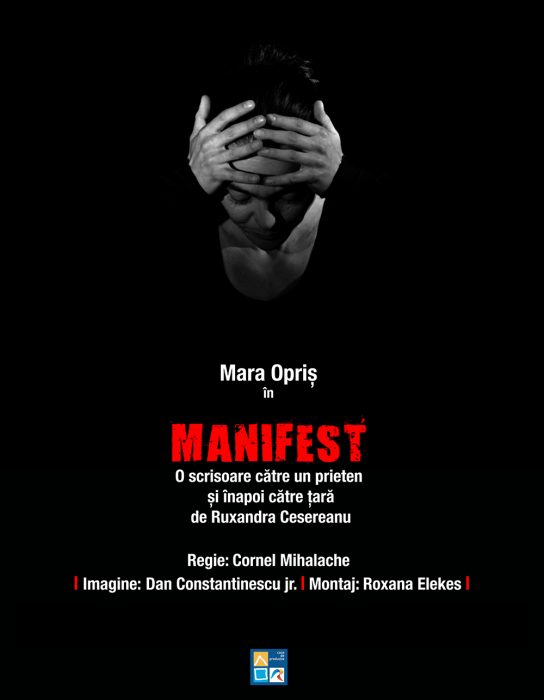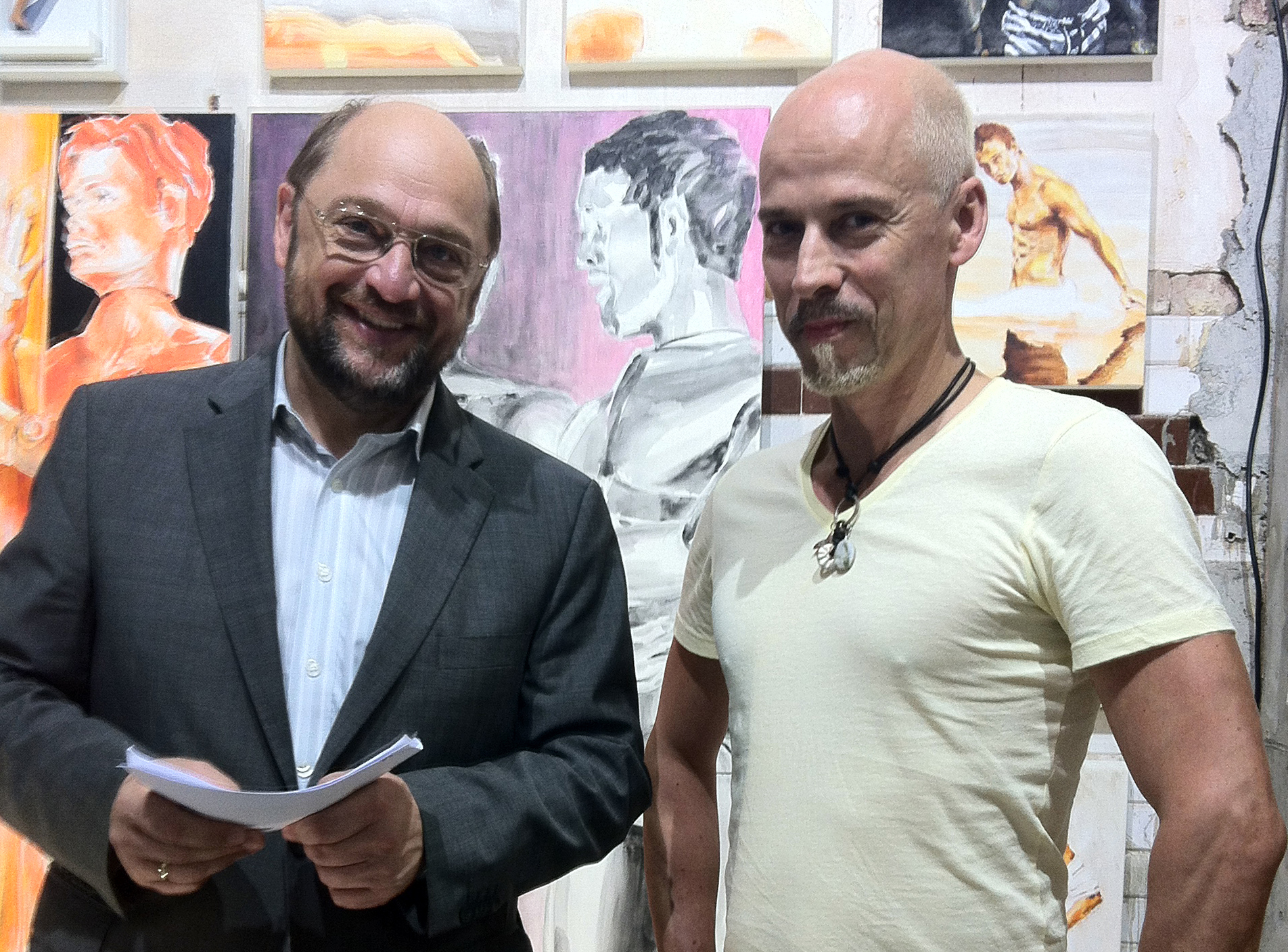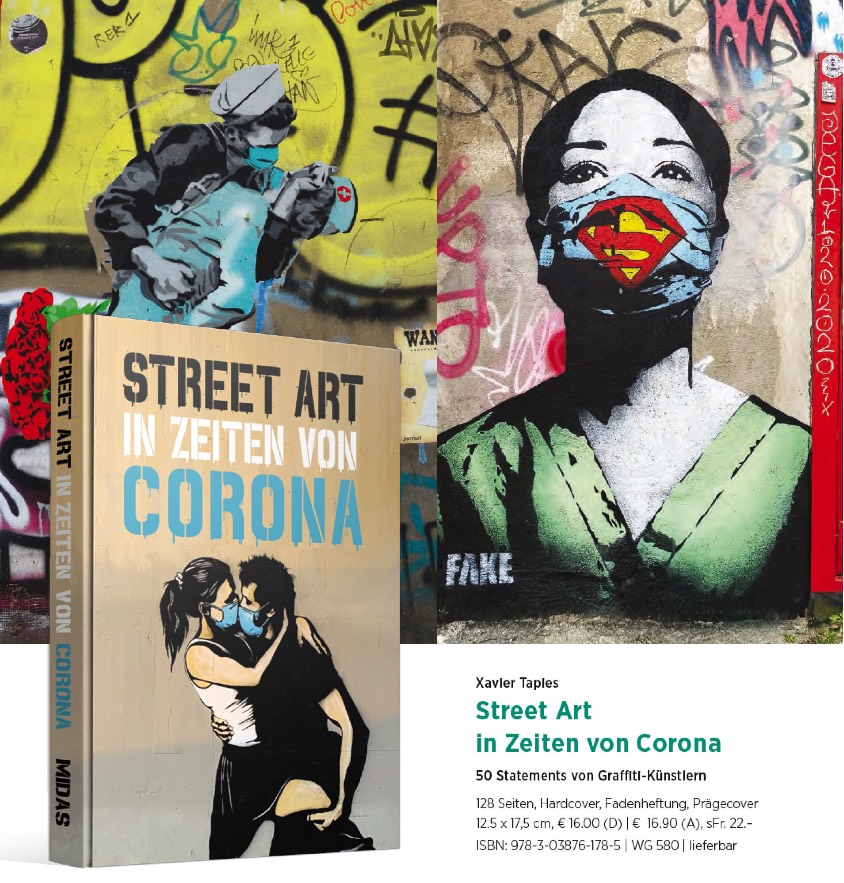 INTERNATIONAL
INTERNATIONAL
CLUJ-MEETINGS
13th Edition: OTHERNESS
16 - 20 October 2024
The 13th edition of the International Encounters in Cluj, Romania, the festival of the National Theatre in Cluj-Napoca, took place from 16 to 20 October 2024. The current theme of this year's edition was ‘Otherness’. (by Dieter Topp)
"In the most recent productions of the National Theatre, “otherness” was addressed in a more subtle or more open way and was intended to stimulate reflection on fundamental questions: Who is the other - the stranger and at the same time my fellow human being - with whom I share this existence? Am I - a 21st century human being - a homogeneous, unified being, or am I still struggling with inner conflicts, identity dilemmas and psychological problems that I have to accept and try to heal?
What does it mean to put myself in their shoes, to be the other, to look at things from a different perspective, from the outside? Who would I be if I were someone else? Can I distinguish between the different roles I play in everyday life? Can I distinguish between fact and fiction in our virtual present? Is the other person as I imagine them to be? Am I what I imagine myself to be? How does all this affect my life in today's Romanian, European society?" (Ştefana Pop-Curşeu, artistic director)
Through the selection of performances and the complementary events, the International Encounters Festival in Cluj provided a platform for artistic dialogue on these fundamental questions, inviting the local audience, theatre specialists from Romania and abroad to search for answers that will allow us to better understand the world we live in, while promoting cooperation in the search for viable solutions for an educated, self-confident society that develops a sense of responsibility for the future.
The programme of performances on the main stage of the National Theatre of Cluj-Napoca included Twelfth Night or What You Will by William Shakespeare, directed by Botond Nagy; Le Piéton de l'air by Eugène Ionesco, directed by Gábor Tompa; The King Stag by Carlo Gozzi, directed by Tudor Lucanu; We Bombed in New Heaven by Joseph Heller, directed by László Bocsárdi.
The performances at the Euphorion Studio, the venue of the Theatre for New Drama and Theatre Experiments, included: Caesar's Last Love by contemporary Romanian author Horia Gârbea, directed by Tudor Antofie; Mr Gherase Fell in Love with Clara Smith by young contemporary Romanian author Cosmin Stănilă, directed by: Doru Vatavului; Songs to Scare Off Fear, a concert performance by Ada Milea, based on ideas from texts by Herta Müller; The Servants of Beauty, inspired by the Bhagavad Gita, directed by Çağlar Yiğitoğulları; B Category Goddesses by Alexandra Felseghi, directed by Andrei Măjeri.
Four pieces are mentioned here in more detail.
The anti-Vietnam War play We Bombed in New Heaven by Joseph Heller dealt with the highly topical interpretation of a theatre play on stage in light of the Russian invasion of Ukraine, in which the protagonists gradually found themselves in a real war situation and were no longer able to distinguish between reality and theatre fiction - just like the audience. They wavered back and forth between opponents and supporters of the war, between lust for power and lust for murder. It ultimately went so far that one of their own children fell victim to their lust for war. Highly demanded and impressively staged by László Bocsárdi.
Director Gábor Tompa described war and destruction on the black side of the colourful opening Pedestrian of the Air. Here the protagonist took to the skies and disappeared. But the flight to the limits of time and space plunged him into the most terrible existential distress. After his return, he reports on the horrific results: ‘I saw whole swathes of paradise in flames... Bombs, bombs... unfathomable caverns gaped open... Thousands of worlds perished... Millions of stars burst...’
Songs to Scare Off Fear, a successful concert performance by Ada Milea, based on ideas from texts by Nobel Prize winner Herta Müller, who worked as a translator in a mechanical engineering factory in Ceausescu Romania after completing her studies. Because she refused to spy on her colleagues for the Romanian secret service Securitate, she lost her job, found only temporary work and was herself targeted by the Securitate. This was followed by interrogations, house searches and slander.
"The characters who live in the memory of this protagonist become extensions of her being, constant presences, either tender or threatening. Although today's audience lives in a seemingly different and distant reality, the performance shows the universality of fear and the therapeutic power of hope."
The fear still runs deep today, even though she was able to leave for Berlin in 1987, the author said in an interview. Ada Milea has translated these resulting, deep-seated fears into music in an appropriately ingenious way.
In an increasingly bleak world, with wars on the border, Turkish-born artist Ҫağağlar Yiğitoğulları continued the spiritual quest of last year's Shamanic Songs/The Quest, with a performance inspired by the philosophical poem Bhagavad Gita, part of the great Hindu epic Mahabharata.
His Servants of Beauty combined old verses with rhythms and melodic lines, a search for the symbolic gesture in the physical and vocal performance of the young performers. Despite all this, an hour of respite to pause, to dialogue with ourselves and with a divinity, perhaps to discover an unexpected opening.
Back

